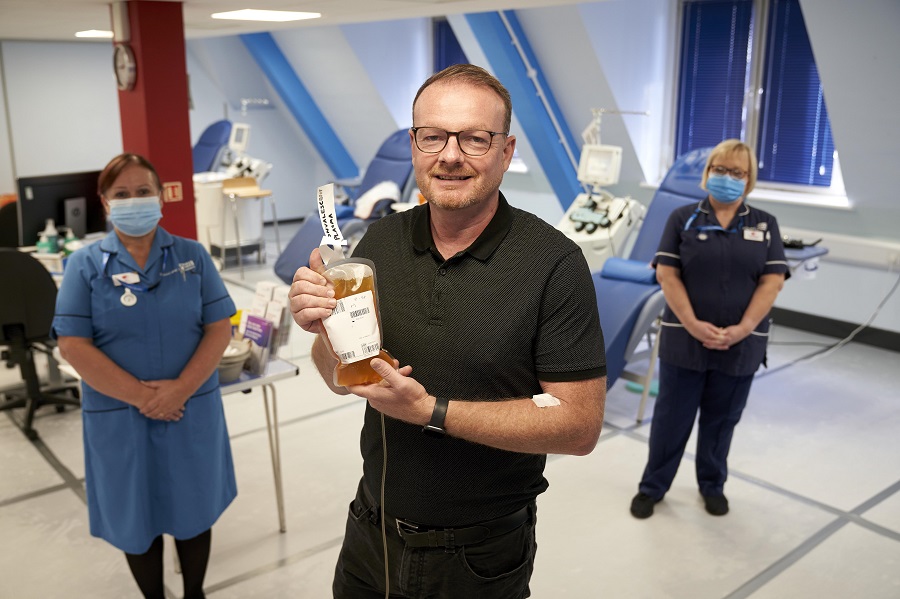Men who’ve had coronavirus symptoms urged to donate plasma due to shortage of male donors
NHS Blood and Transplant urgently needs men who’ve had coronavirus (COVID-19) or the symptoms volunteer to donate blood plasma.
 Men are far more likely to go on to donate a unit of plasma with a high level of antibodies. A man booked in to donate for the first time is three times more likely to give a high antibody unit of plasma than a woman booked in to donate for the first time.
Men are far more likely to go on to donate a unit of plasma with a high level of antibodies. A man booked in to donate for the first time is three times more likely to give a high antibody unit of plasma than a woman booked in to donate for the first time.
This is partly because men generally produce more antibodies, because on average they are more seriously affected by the virus. Men also generally larger veins and a larger volume of blood in their circulation, meaning they are more likely to meet the donation requirements on the day.
To date, around 17,000 donations have been taken nationally.
Plasma from people who have recovered can be transfused into people who are still unwell and struggling to develop their own immune response. The plasma contains neutralising antibodies which could stop the virus spreading and save lives.
NHS Blood and Transplant’s Clinical Trials Unit is collaborating on the trial with the RECOVERY and REMAP-CAP platform trials. Preliminary trial results are expected later this year. Plasma is being collected and stored at a large scale so that if the trials show patient benefit, there are significant stocks ready for immediate use at hospitals around the country.
Professor Dave Roberts, Associate Director for Blood Donation at NHS Blood and Transplant, said: “We’re not sure why fewer men than women are offering to donate but we need men who have coronavirus symptoms to come forward and offer to donate.
“You don’t need to have had a positive test – if you had the symptoms, we want to hear from you, as all donations are tested.
“Please help the NHS fight COVID-19 by donating. It is safe and easy, and you could save lives.”
Convalescent plasma is being collected at our 23 donor centres around the country, and several pop-up donor centres.
Donation takes about 45 minutes. Your body usually replaces the plasma you’ve donated in 24-48 hours. Your body quickly replaces the donated antibodies and people can donate plasma as often as every two weeks.
Find out more about convalescent plasma donation and how to get involved.
Picture: Darren Buttrick after donating convalescent plasma